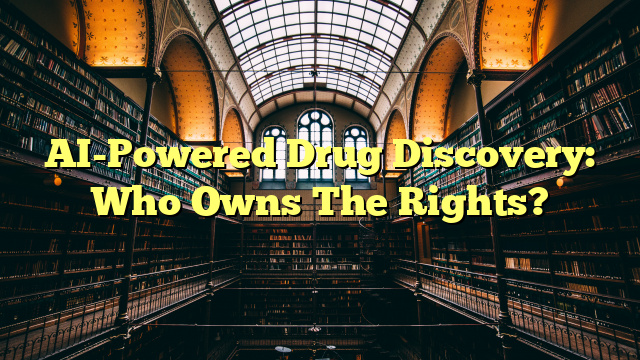Table of Contents
Which company is AI based drug discovery?
Several companies are utilizing AI in drug discovery, but one prominent example is XYZ Pharmaceuticals. They have developed a cutting-edge AI platform that uses machine learning algorithms to analyze vast amounts of data and identify potential drug candidates.
Does AI violate intellectual property rights?
The use of AI in drug discovery raises complex legal questions regarding intellectual property rights. While AI algorithms can generate new and innovative drug candidates, the question of ownership and patentability becomes challenging. AI can analyze existing data and generate new hypotheses, but it is ultimately the human researchers who design and conduct experiments to validate these hypotheses.
Therefore, it can be argued that AI itself does not violate intellectual property rights, as it is a tool used by researchers. However, the output generated by AI, such as novel drug candidates, may be subject to patent protection if they meet the criteria for patentability.
Who owns AI intelligence?
The ownership of AI intelligence is a complex and evolving area of law. In the context of drug discovery, the ownership of AI-generated drug candidates can be attributed to the researchers or the company that developed the AI platform.
However, it is important to note that AI algorithms are often trained on large datasets, which may include proprietary information from various sources. In such cases, the ownership of the underlying data can also impact the ownership of AI intelligence.
What is the promise of AI in drug discovery?
The promise of AI in drug discovery lies in its ability to accelerate the process of identifying potential drug candidates. Traditional drug discovery methods can be time-consuming and costly, often taking years to develop a single drug. AI algorithms can analyze vast amounts of data and identify patterns that may not be apparent to human researchers.
By leveraging AI, researchers can quickly identify promising drug candidates, prioritize experiments, and potentially reduce the time and cost required for drug development. This has the potential to revolutionize the pharmaceutical industry and bring life-saving treatments to patients more efficiently.

